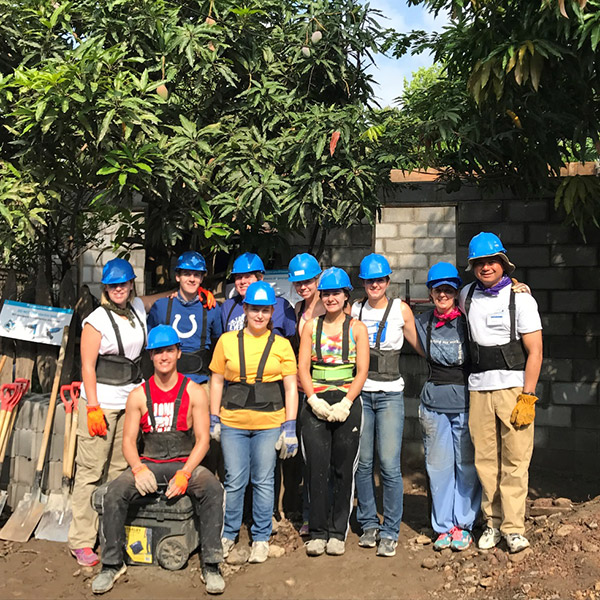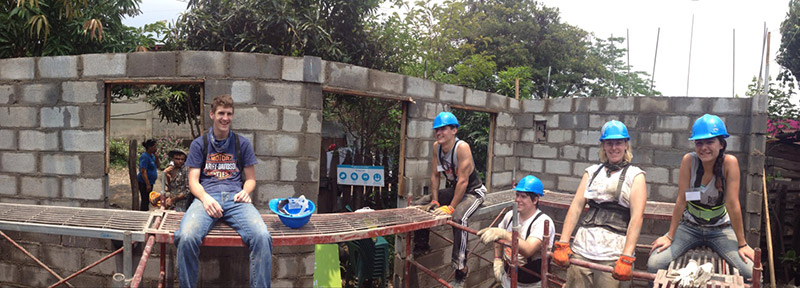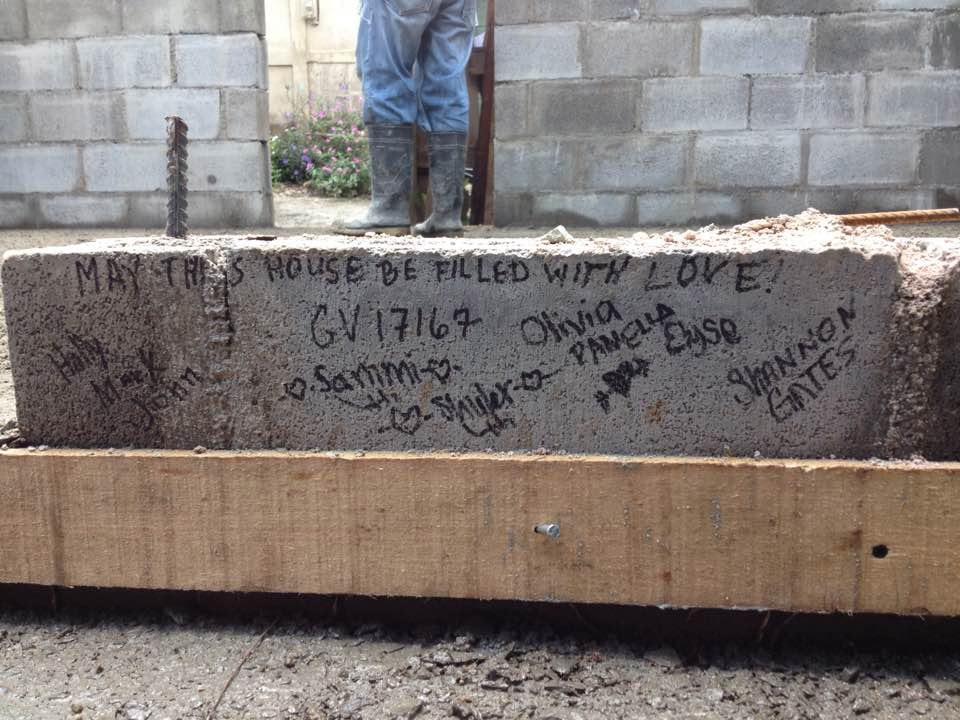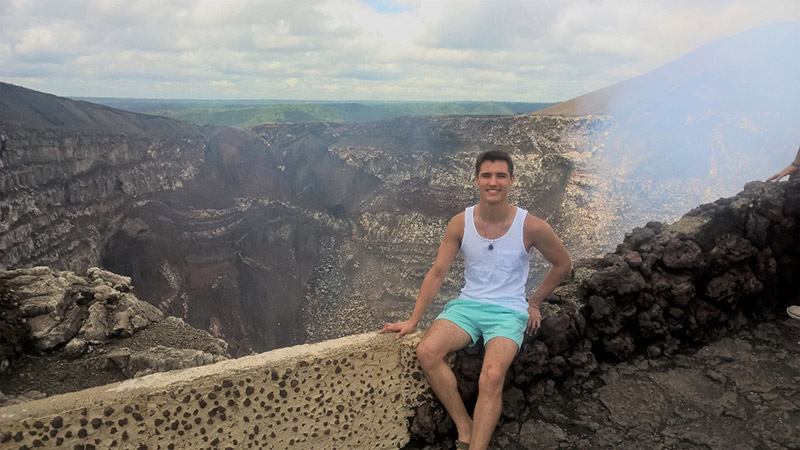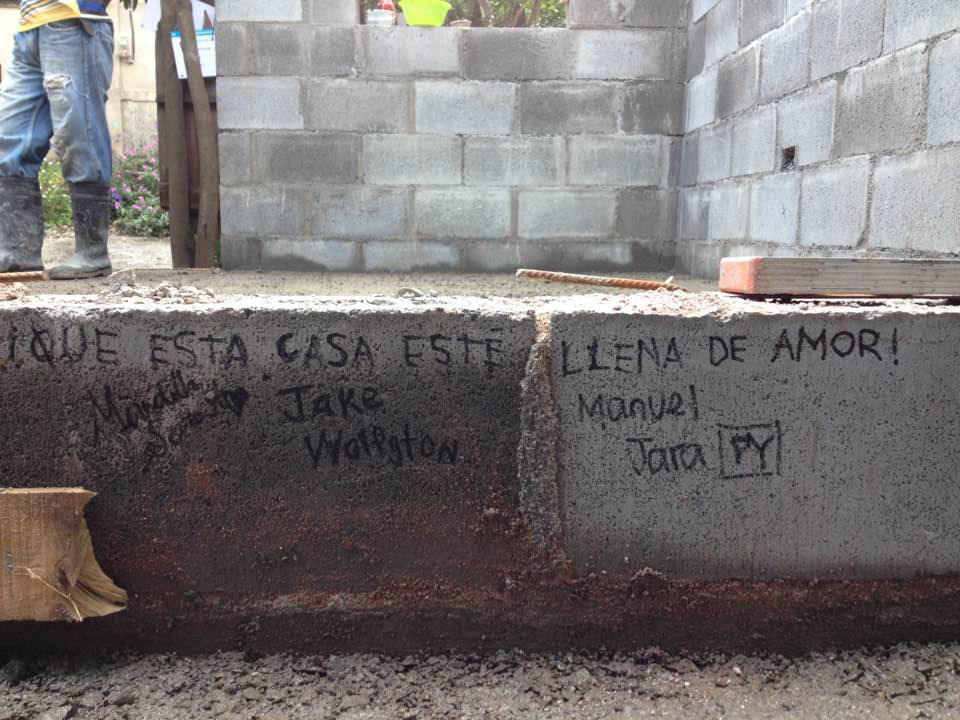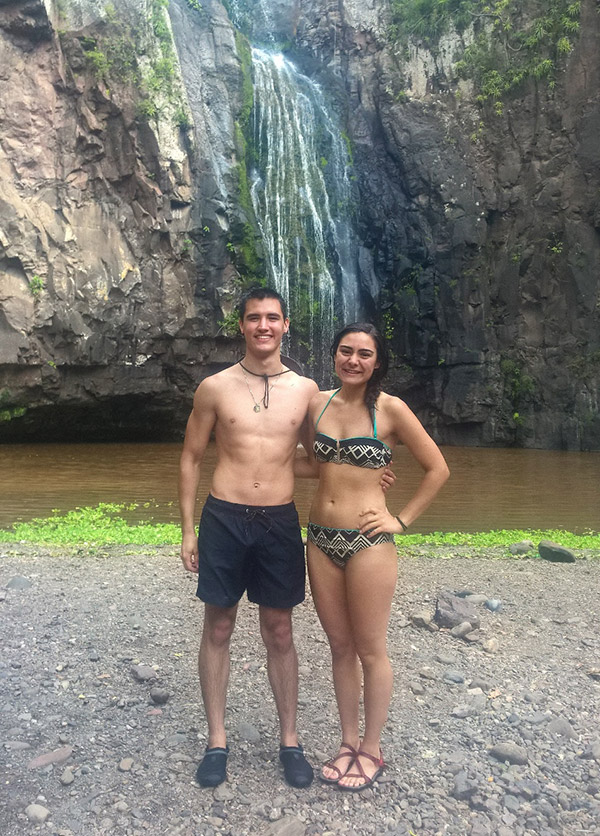Habitat for Humanity: Nicaragua
Participants
Shannon Gates (Senior, Civil Engineering)
Manuel Jara Pérez (Senior, Civil Engineering)
Dr. Mark Valenzuela (Associate Professor of Civil Engineering)
Term Abroad: Summer 2017
Location: Nicaragua
- What has been your most rewarding experience abroad so far?
-
Shannon: The most rewarding experience when traveling abroad was the gratitude expressed by the family receiving the home that was built. It was a moment in my life I will never forget.
Manuel: My most rewarding experience abroad is to be able to say I contributed to someone’s new beginning. Being able to help build this house with my classmates was truly humbling, and it provided me with a new insight of my major and just the way I look at life from now on.
Dr. Valenzuela: I have gone to Harlaxton eight different times (two fall semesters to teach and six summers to do research, consulting, or just to enjoy the Manor) and I have enjoyed each and every time. But really the most reward experience abroad was going with eight of my civil engineering students and Holly Carter to Esteli, Nicaragua to build a house for a family of five. In basically five days, the students, Holly, and I were able to build four walls and a concrete floor that we knew would make such a big difference in the life of Eva, Crelin, Josue, Evert, and little Ana.
- What has been your favorite part about your host culture?
-
Shannon: My favorite part about my host culture was the vibrant colors that were expressed all around the city. Most homes were painted very bright colors and it was nice to see such beauty in such a poverty stricken area.
Manuel: I really liked their food, the landscapes, and enjoyed the warmth of the people.
Dr. Valenzuela: We arrived in Esteli on a Sunday and some of the students, Holly, and I decided to go to Mass at the cathedral. Even though I don’t speak Spanish well, you could just sit back and get the feeling that there was this faith that was vital and alive. I loved it that the priest invited everyone at the end of Mass to come up to the altar to receive a blessing. And so we all joined in the line and he gave each and everyone one of us a hug and I felt like our trip was off to a great start with such a warm blessing. This is the way that I think of the people of Nicaragua. Genuine, warm, and big hearted.
- What was your favorite part of the Habitat build?
-
Shannon: My favorite part about the build was seeing the final product after a week of tough work.
Manuel: My favorite part was when we were doing the dedication of the house, which is when we are done with the build and a ribbon is put up for the family to cut. In addition, at this time the team expressed how much this experience impacted them, and the family also shared some thoughts—mostly about how grateful they were for the team’s work.
Dr. Valenzuela: At the end of the last day, we all were able to write our names on part of the house, along with a wish that the house always be filled with love. I was moved with how reverently the students wrote their names. And I was especially moved when I noticed the mother of the family watching us from her old house, and smiling. We will always be part of that family’s life as long as they are able to enjoy their house. I feel blessed to have had such good students and that they were able to accomplish what they set out to do: make a difference in the life of our family in Esteli.
- What was the most challenging part of your trip?
-
Shannon: The most challenging part of the trip was not being able to pet the stray dogs.
Manuel: The most challenging part was honestly on day 4 to persevere through really exhausting tasks while having to deal with everyone else’s mood and trying to control my emotions so I would not say something that I would later regret.
Dr. Valenzuela: I expected that the physical labor would be the hardest part for me. I’m not as young as I used to be! But what was really the most challenging were those moments when I felt so different from the people of Nicaragua. A lot of times this meant feeling frustrated when I didn’t understand what they were saying or when I couldn’t find the words in Spanish to explain what I wanted to say. And really the most challenging part was when I started to describe the living conditions of our Habitat family in Esteli to my partner back home. How is it that so many families have to live in such dire circumstances and yet how is it that we live in such relative luxury? Why? It made me grateful, yes, but the challenge was really how to help more families in developing countries.
- What is your best advice for students who participate in this project in the future?
-
Shannon: My advice for future students is: DO IT. Do it now while you’re young and have the time.
Manuel: Be open-minded about everything: culture, language, food, perspective. See the trip as “I will experience something new every day,” and prepare to get out of your comfort zone and push your limits. Regardless of one being strong, smart, collected, or even used to hard labor, there are still certain factors that can come into play to not allowing one to perform to their full potential. Do every task, even the ones that are not as fun, with a smile and try to always bring good energy to every work day. Look at the bigger picture, and how you are contributing to change someone’s life, it will all pay off. Also, if you go to a country where you do not know the language, the most important thing is to try. The locals will appreciate this gesture. However, there is a fine line between trying and mocking it, so do not cross it.
Dr. Valenzuela: I really admired the mind-set of the students who went on this trip. They were determined to get it done, even though we were rained out one morning. They realized that they needed to be good teammates to get the job done: to communicate, to listen, and to encourage. And they were willing to go into it with an open mind and be flexible because at a job site, not everything is going to happen according to plan or the way you are used to doing things back at home.
- Anything else you would like to tell us?
-
Shannon: Habitat for Humanity is an amazing organization that I will continue to be a part of here in the United States.
Manuel: Thank you for this amazing opportunity. It not only allowed me to push my limits, increase my knowledge, and put into practice things I have learned in the classroom, but it also made me realize why I chose my profession and how I can help others through it. Everyone who tries to go on this sort of trip should definitely feel committed to the task and very proud of themselves to be part of the group of people who dare to change the world through concrete actions.
Office Phone
812-488-3460
Office Email
studyabroad@evansville.edu
Office Location
Room 116, Olmsted Administration Hall
